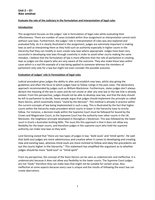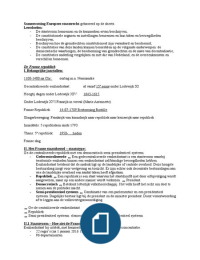Essay
UNIT 2, D1
- Course
- Institution
This assignment is original and was written by me. It is extremely detailed and it is absolutely worth the price I guarantee that you will love this. The evaluation of the role of the judiciary in the formulation and interpretation of legal rules were considered. This assignment contains everything...
[Show more]





